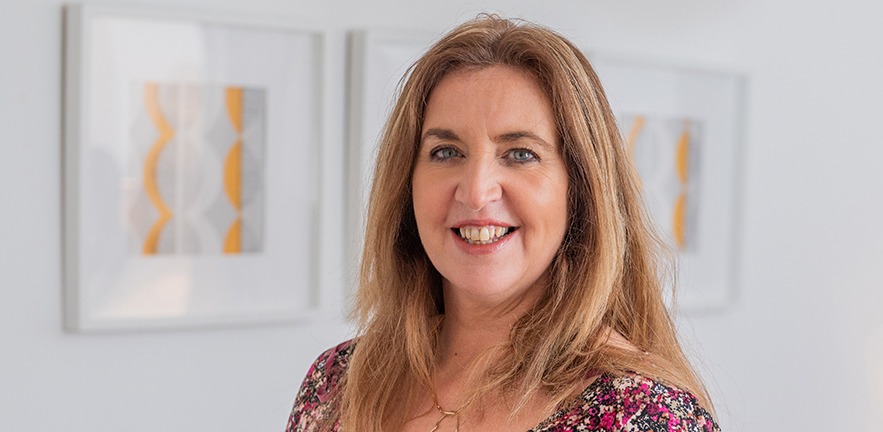Homes for Good, winner of the Cambridge Social Innovation Prize, is a lettings agency for people with limited housing choice. Founder and CEO Susan Aktemel shares thoughts about her social enterprise journey.
It’s been a whirlwind few years for Susan Aktemel, founder and CEO of Homes for Good, a Glasgow-based social enterprise lettings agency designed for people who have limited housing choice. Homes for Good owns nearly 350 properties and manages a further 250 properties
Homes for Good was an inaugural winner of the Cambridge Social Innovation Prize, awarded by Trinity Hall and the Cambridge Centre for Social Innovation at Cambridge Judge Business School. The award, which highlights the positive social impact made by businesses across the UK, carried a £10,000 prize.
Providing housing dignity for people deemed risky by others
“The driving motivation is to give people dignity in housing: for tenants to love your home and for your home to love you,” the award announcement said. “People who live on benefits or so-called ‘high-risk’ tenants often don’t get that opportunity.”
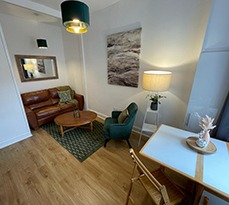
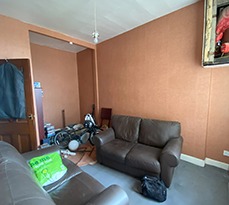
This January, Homes for Good was awarded a prestigious Gold World Habitat Award by World Habitat in partnership with UN-Habitat, which recognise innovative and outstanding housing ideas, projects and programmes around the world.
“The organisation is both a lettings agency and property developer, purchasing and renovating empty or dilapidated homes,” World Habitat said in announcing the award, which also carries a £10,000 prize. “It couples affordable rent with a holistic tenancy support approach, including providing advice on reducing energy bills and around benefit claims.”
Helping people on the margins, says Nicole Helwig of Cambridge Judge
In March, Susan Aktemel was a winner of the sixth annual NatWest WISE100, an initiative by Pioneers Post in partnership with NatWest Social & Community Capital to champion and share expertise among women in social enterprise across the UK. Susan was named WISE100 Social Business Leader of the Year, awarded to a CEO or leader with more than 5 years of leadership experience building revenue, social impact and a strong team.
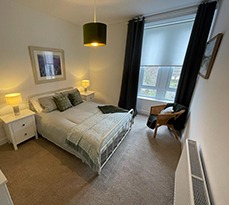
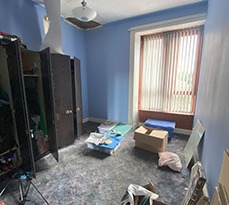
The guest judge for this category was Nicole Helwig, Executive Director of the Cambridge Centre for Social Innovation at Cambridge Judge, and Nicole also presented the award at a ceremony in London.
“Susan’s track record is truly impressive,” Nicole said. “Her accomplishments demonstrate business acumen as well as the skills of an astute social entrepreneur. The business metrics (£20m raised to date) and building a business to 28 staff are highlights, but what stands out more for me is that she has achieved all this while working to change the way the private rental system works for people on the margins.”
We caught up with Susan Aktemel to get her thoughts on social enterprise, communicating purpose simply, leading by example, and the importance of interior design in the property business.
A social enterprise needs to wash its face, that is, it needs to make money in order to sustain and expand and help more people. I started off in social enterprise back in 1994 with Impact Arts, which worked in the arts with community groups, at a time when nobody was talking about social enterprise. I started Impact Arts as a sole trader, it wasn’t a charity, but I said: “I’m not going to lose money.” I’ve met a number of people in social enterprise who say “my accountant deals with that”, but this doesn’t work – you need to be on top of the money all along.
Homes for Good began after I decided to create a property portfolio with my husband for my children, so we created a buy-to-let portfolio. Initially our properties were handed to lettings agencies, but I decided to do something different: the private lettings industry at that time was very unregulated in Scotland, and I saw that the system wasn’t really working for landlords or for tenants. My husband said: “Why not create a lettings agency and do it the way you want to do it.” Everybody hated lettings agency, so I decided that creating a social enterprise would look and feel different. We began in 2013.
When you’re running a social business you’ve got to know what your social impact is and communicate it very simply. Our message is short and simple: “We provide homes for people who need them”.
I’m good at baking – taking ingredients and creating something. So the recipe we created to attract investment was to combine properties of low value but in high volume, use other social enterprises for refurbishments including firms that recycle furniture, and cater to tenants who other people were saying “no” to. There was a stigma around people on housing benefits as they were perceived to be higher risk; sometimes they are, but usually they are not.
Most of our properties are in Glasgow – the average buying price was around £35,000 when we started a decade ago, and is now around £60,000. That sort of price is only possible in certain areas, but the thing that’s lovely about Homes for Good is that the social and financial aspects are in sync: our properties are affordable and are located in areas where our tenants often already have families or other community ties.
The most surprising thing in our Homes for Good journey is to learn that investors make decisions with their hearts. They’ve got all their facts and figures, and are very focused on financial return, but they back you as a person. It’s the story you tell them, and they make the decision with their heart. I didn’t realise in the early days how powerful that was.
We want to lead by example. About 3m people in the UK live in the private rental sector, so if we can have impact with others in the private rental market that would mean a ripple effect. We now own nearly 350 properties and manage nearly 600 properties including those we own, and in five years we’d like to get to 600 owned and 1,000 managed, which seems like the right level of infrastructure. We’re hoping to work with a partner in London, and also expand into the south of Scotland.
One of our key selling points is interior design. We have a full-time interior designer, and the before-and-after photos of what we’re able to do is the “wow factor”. Everybody understands the nature of “home” and that’s what we’re creating for people who really need that sort of security.


